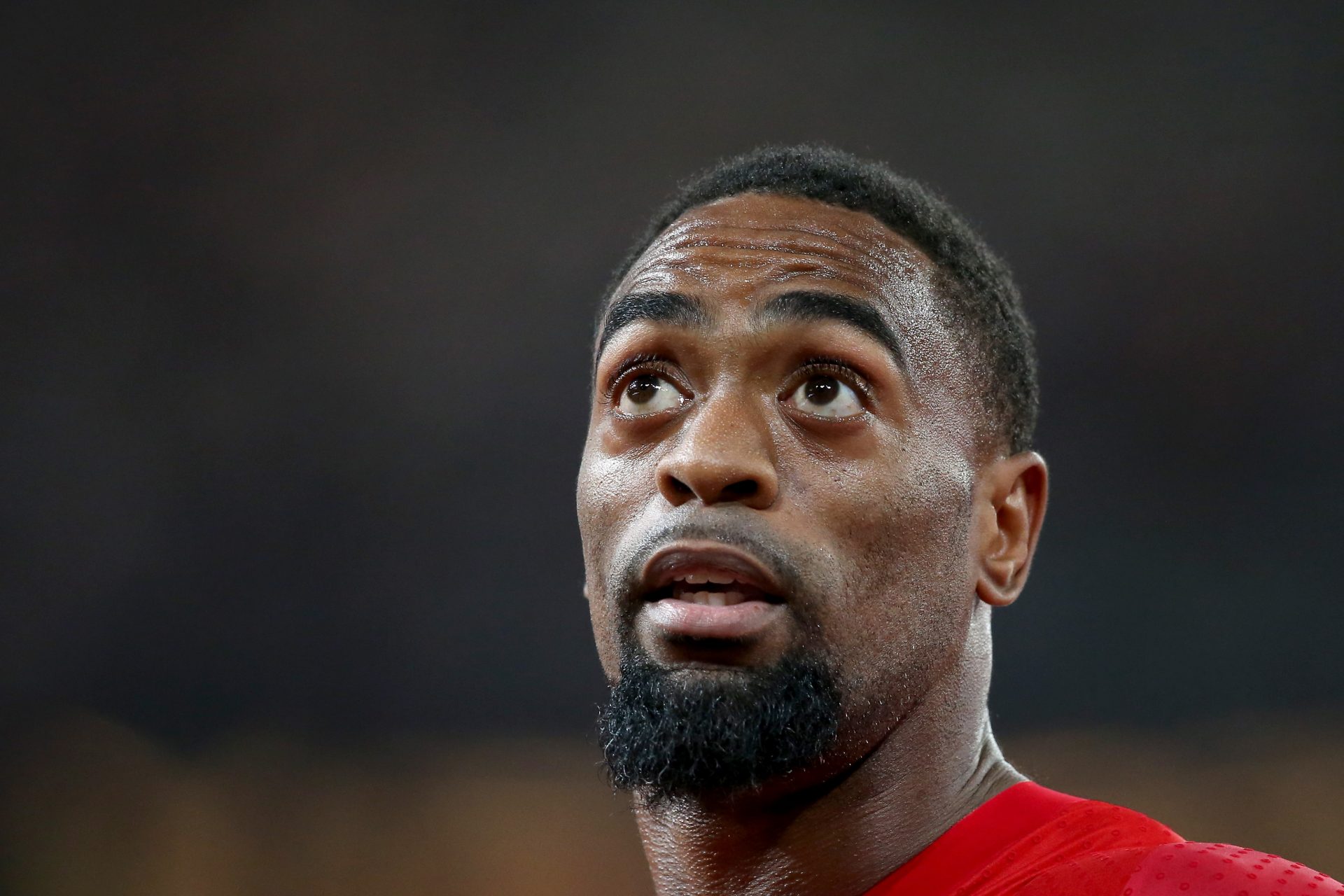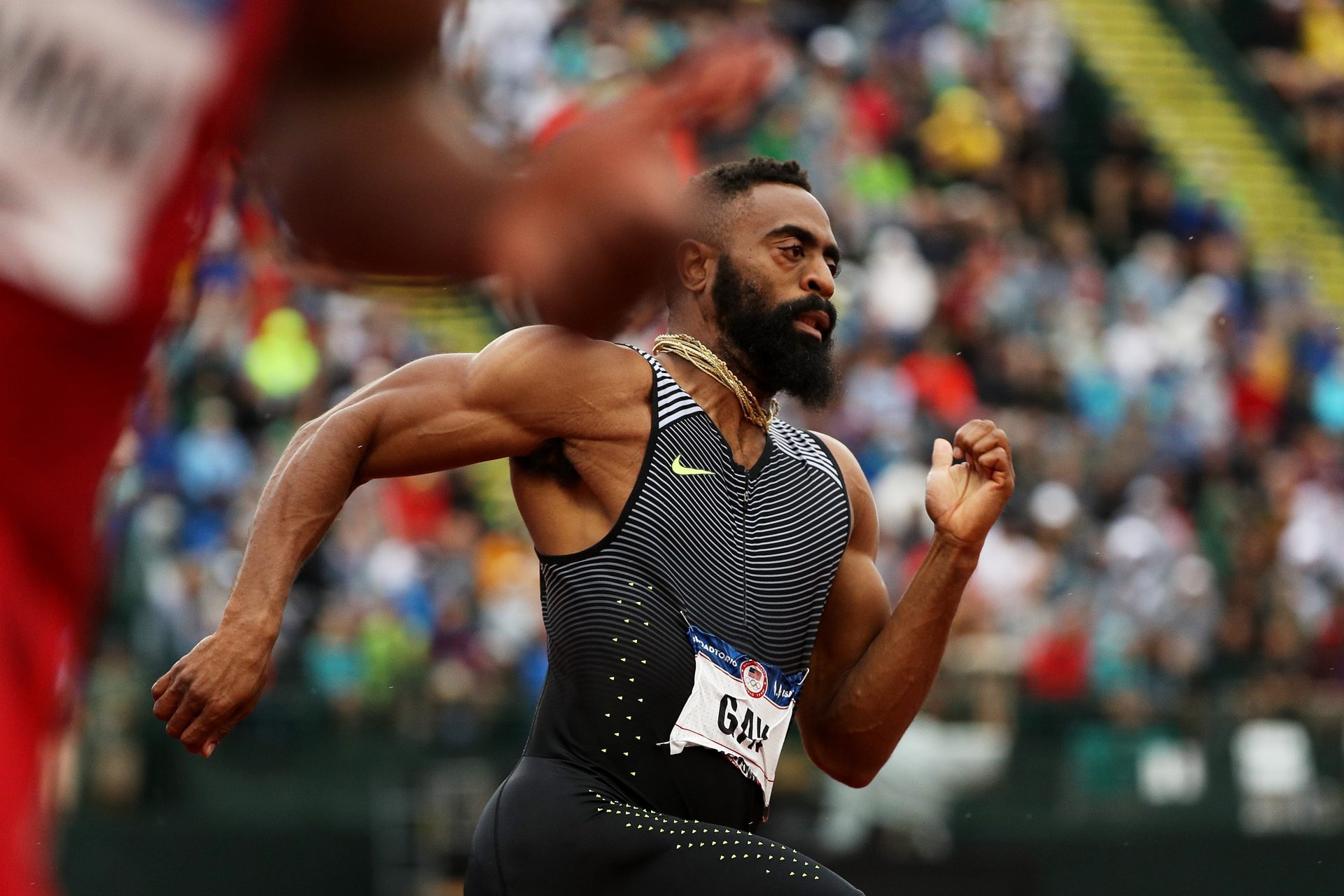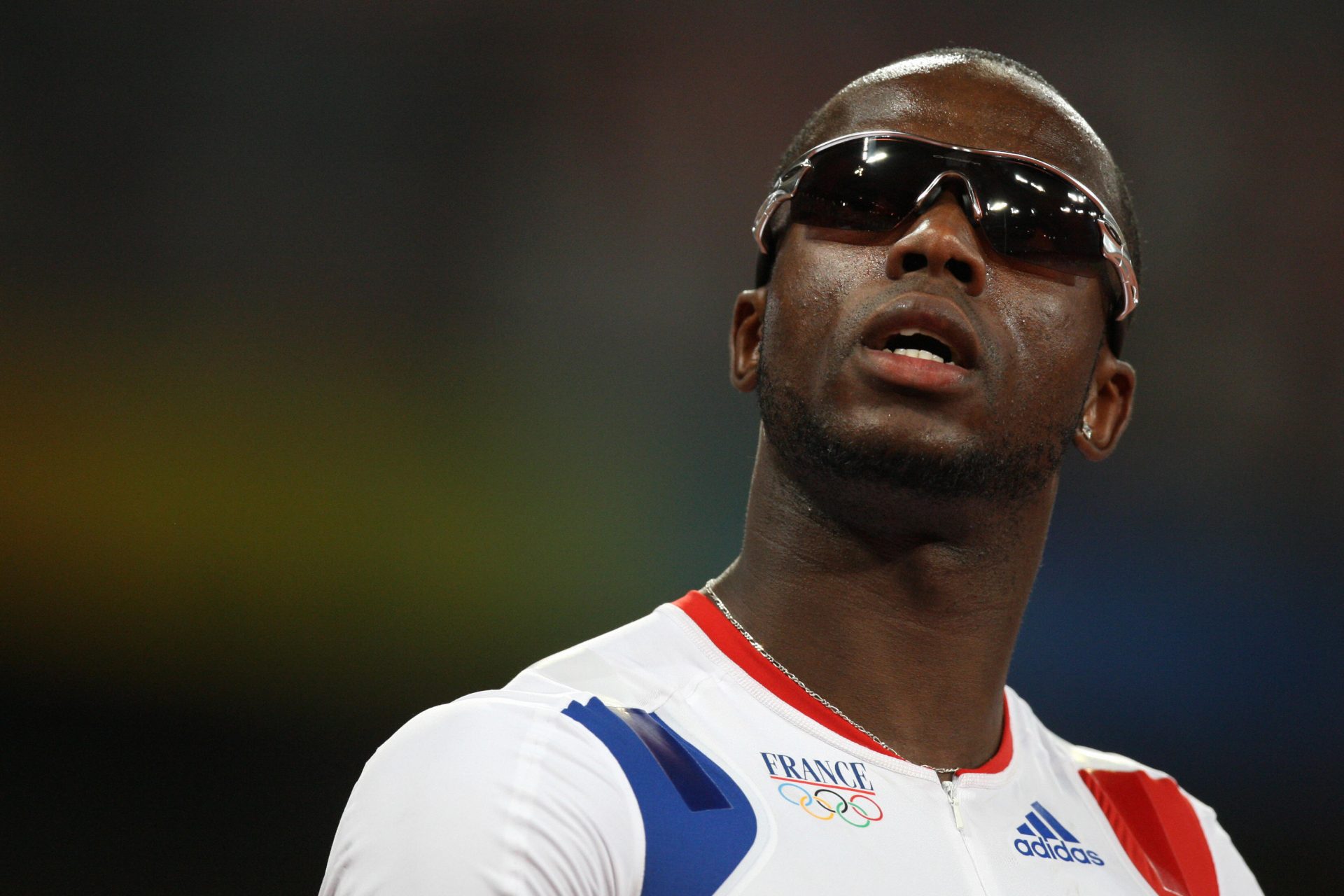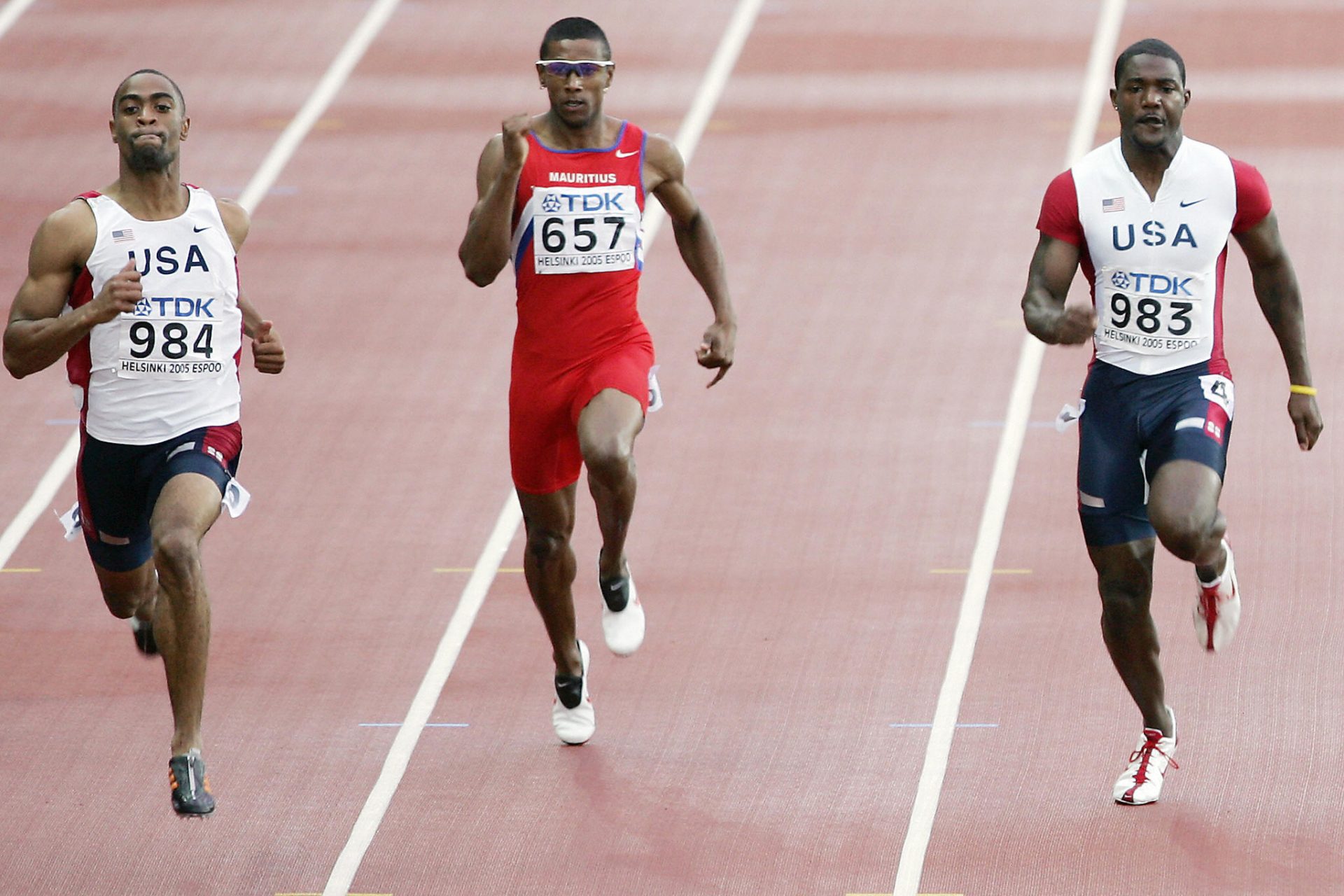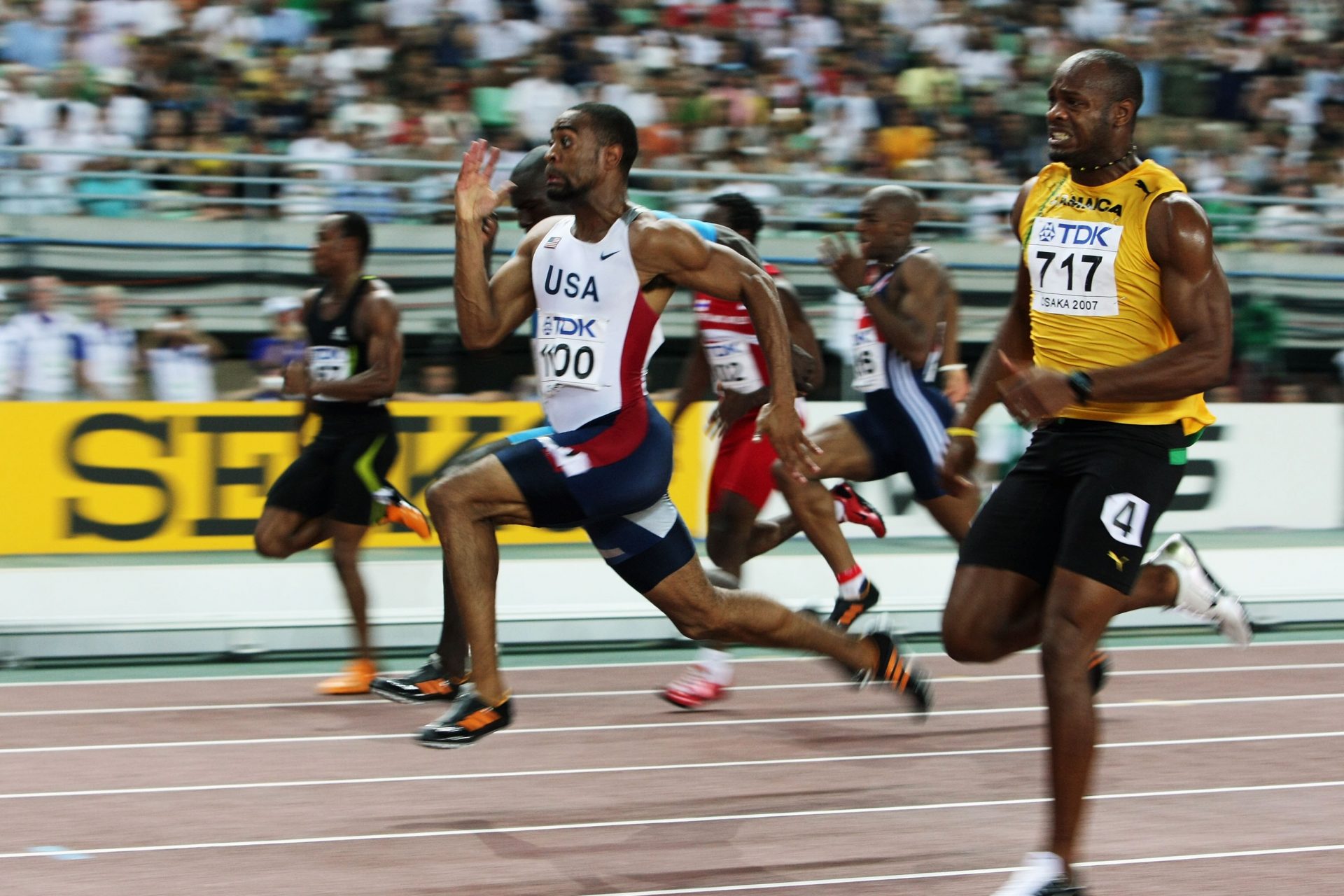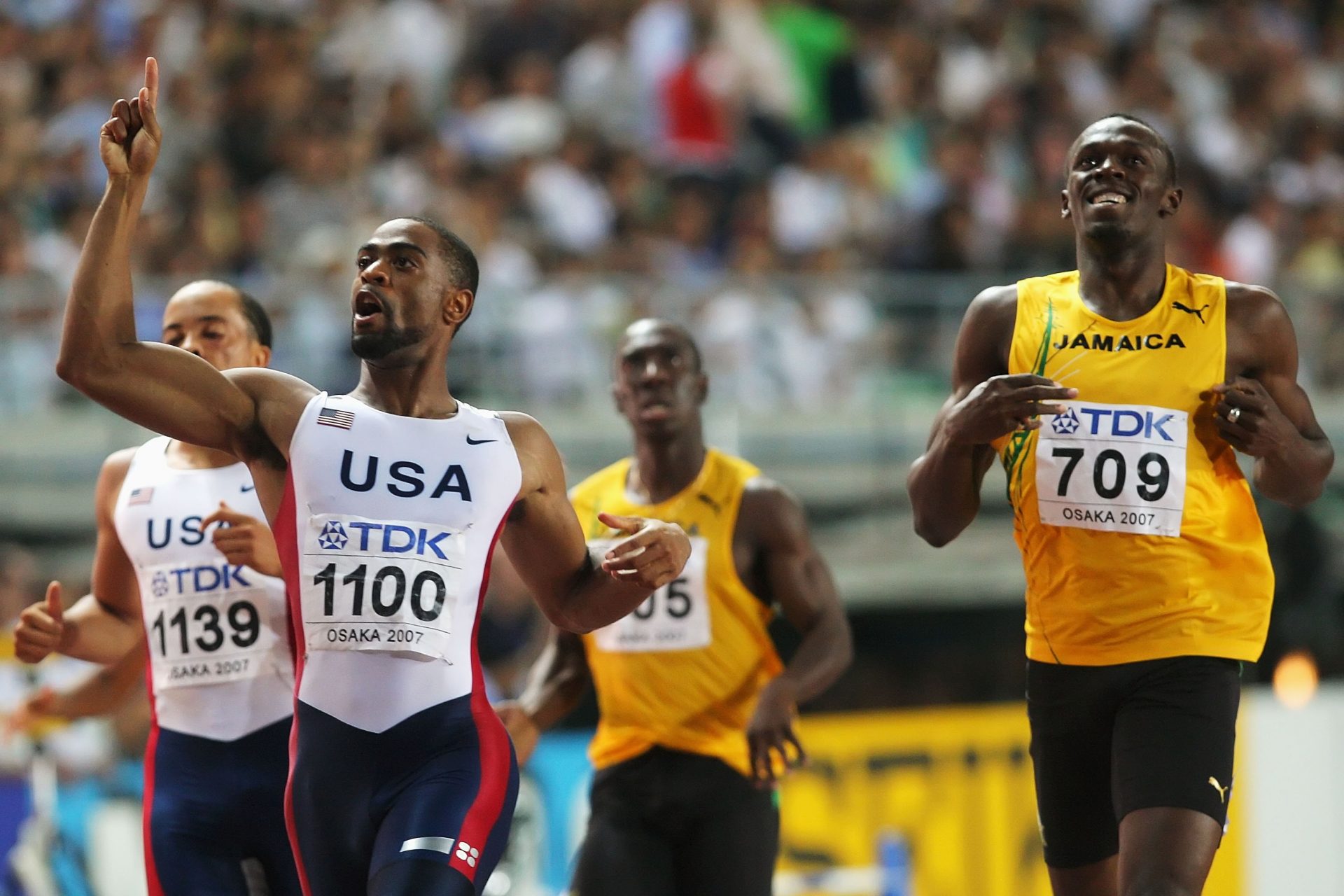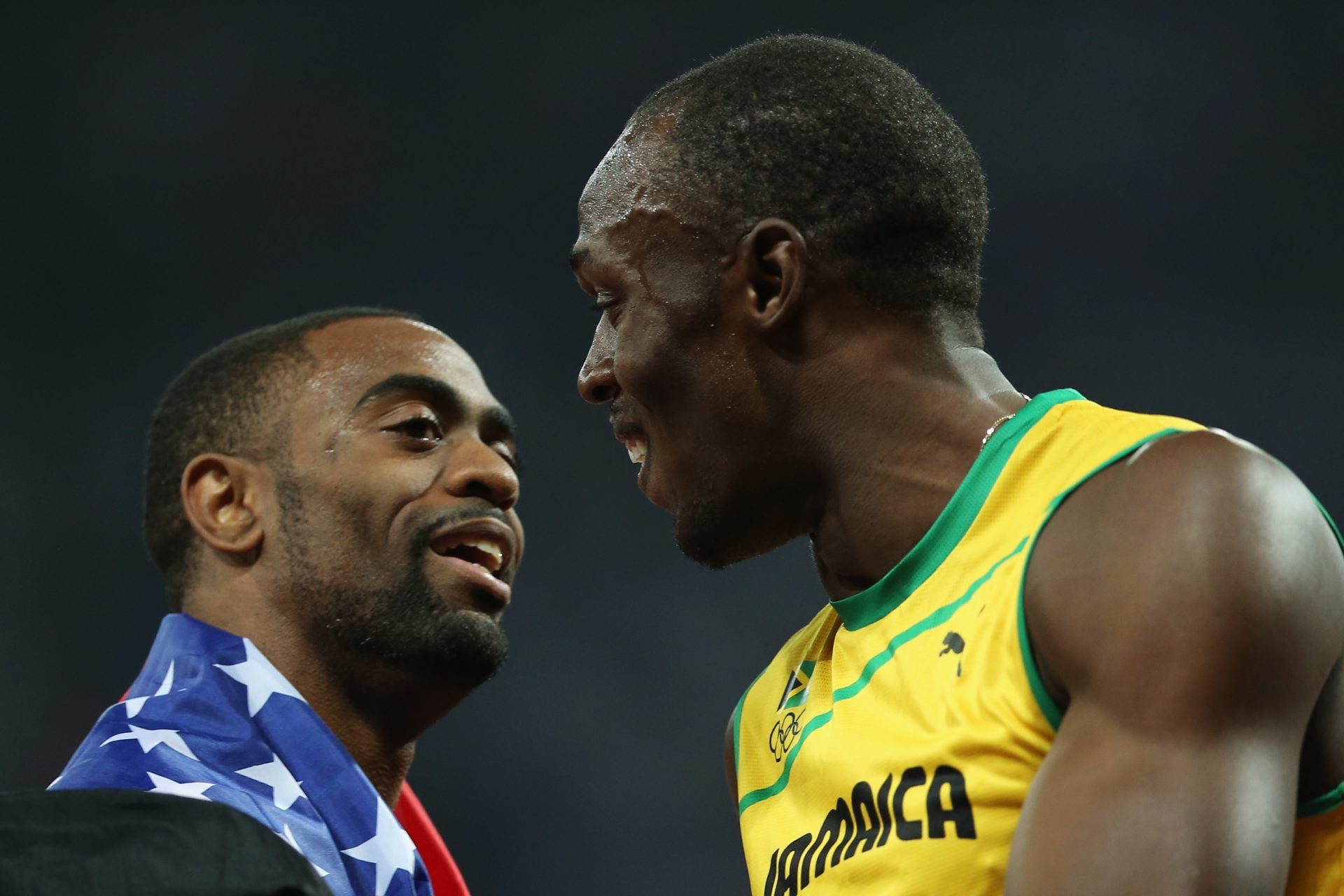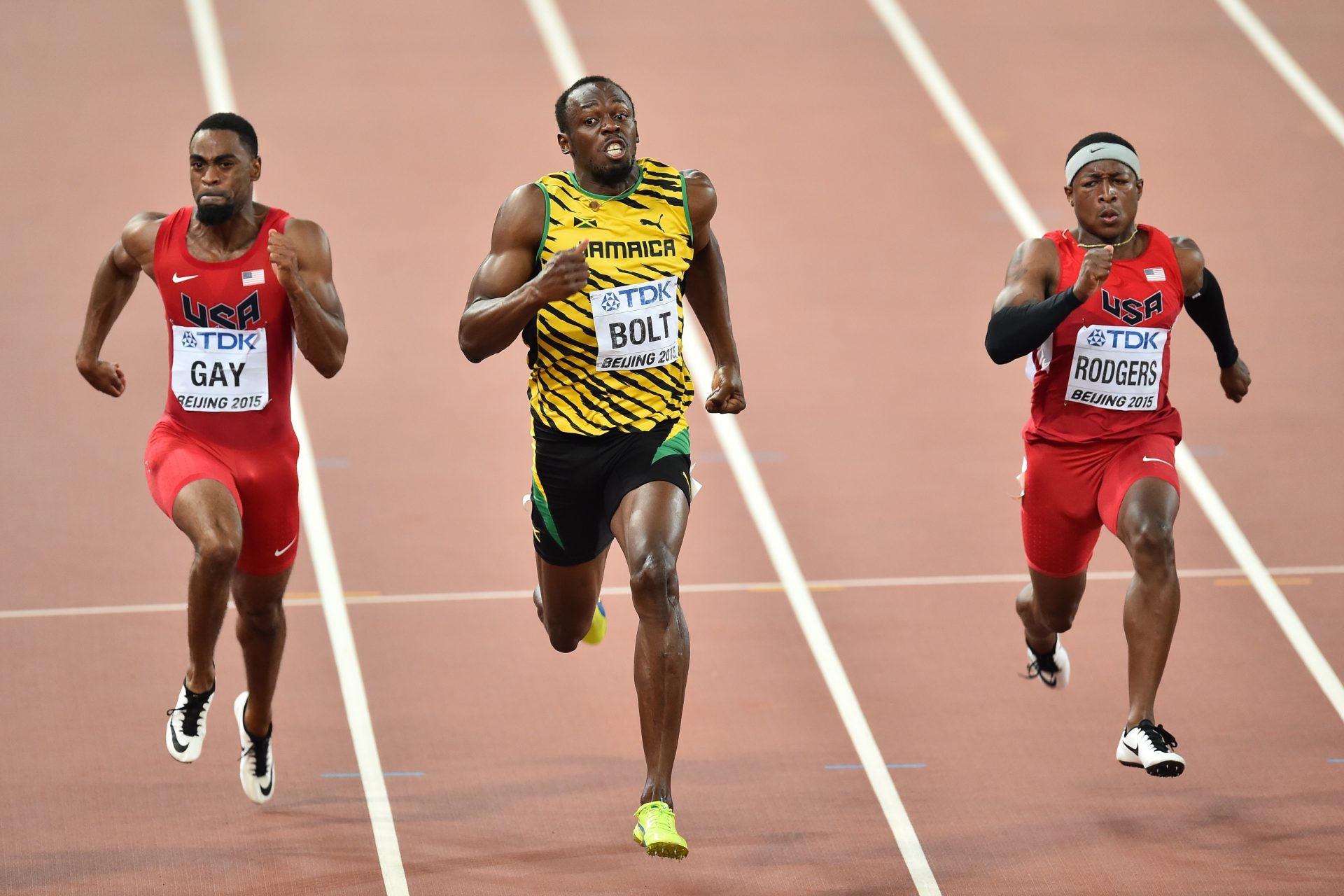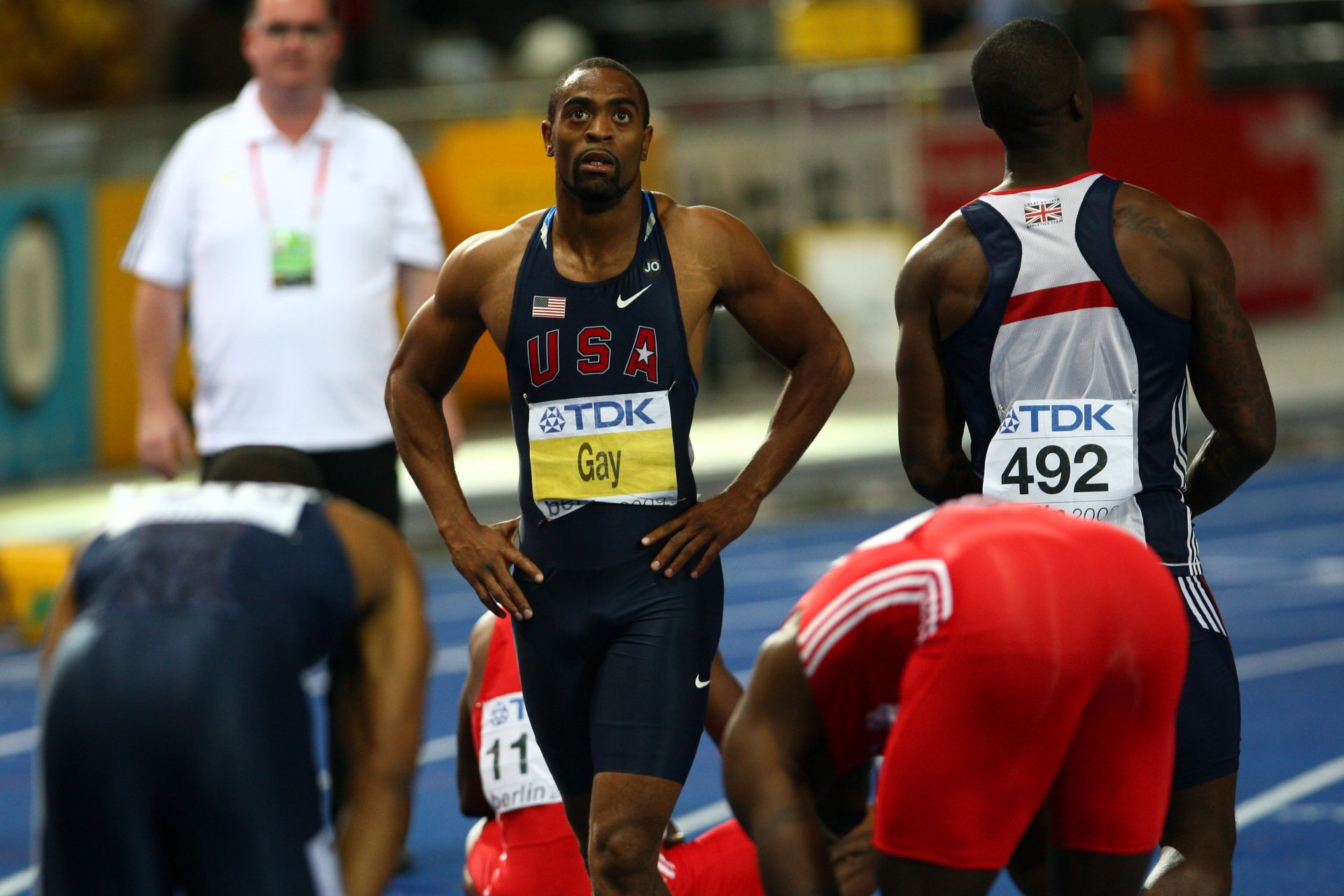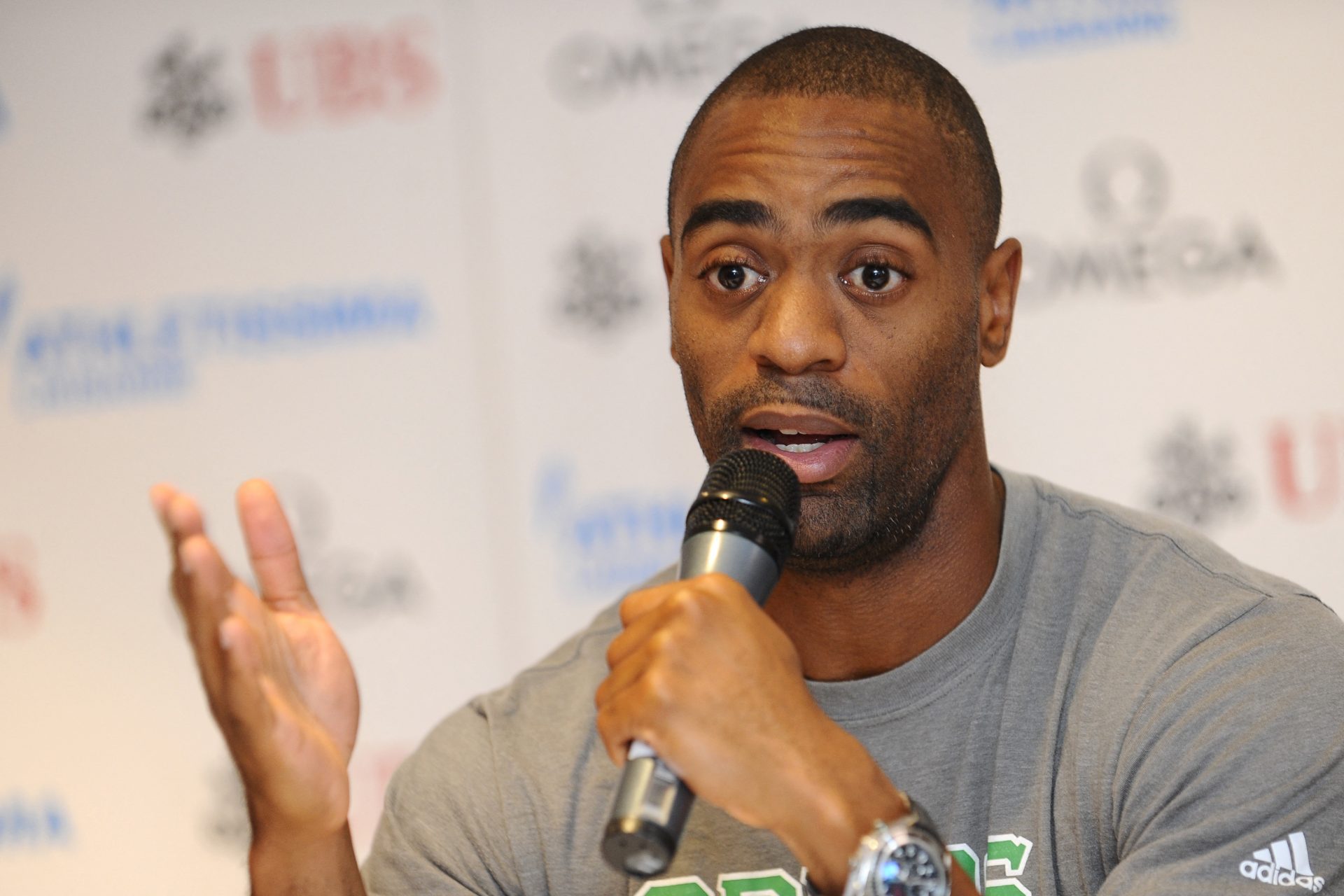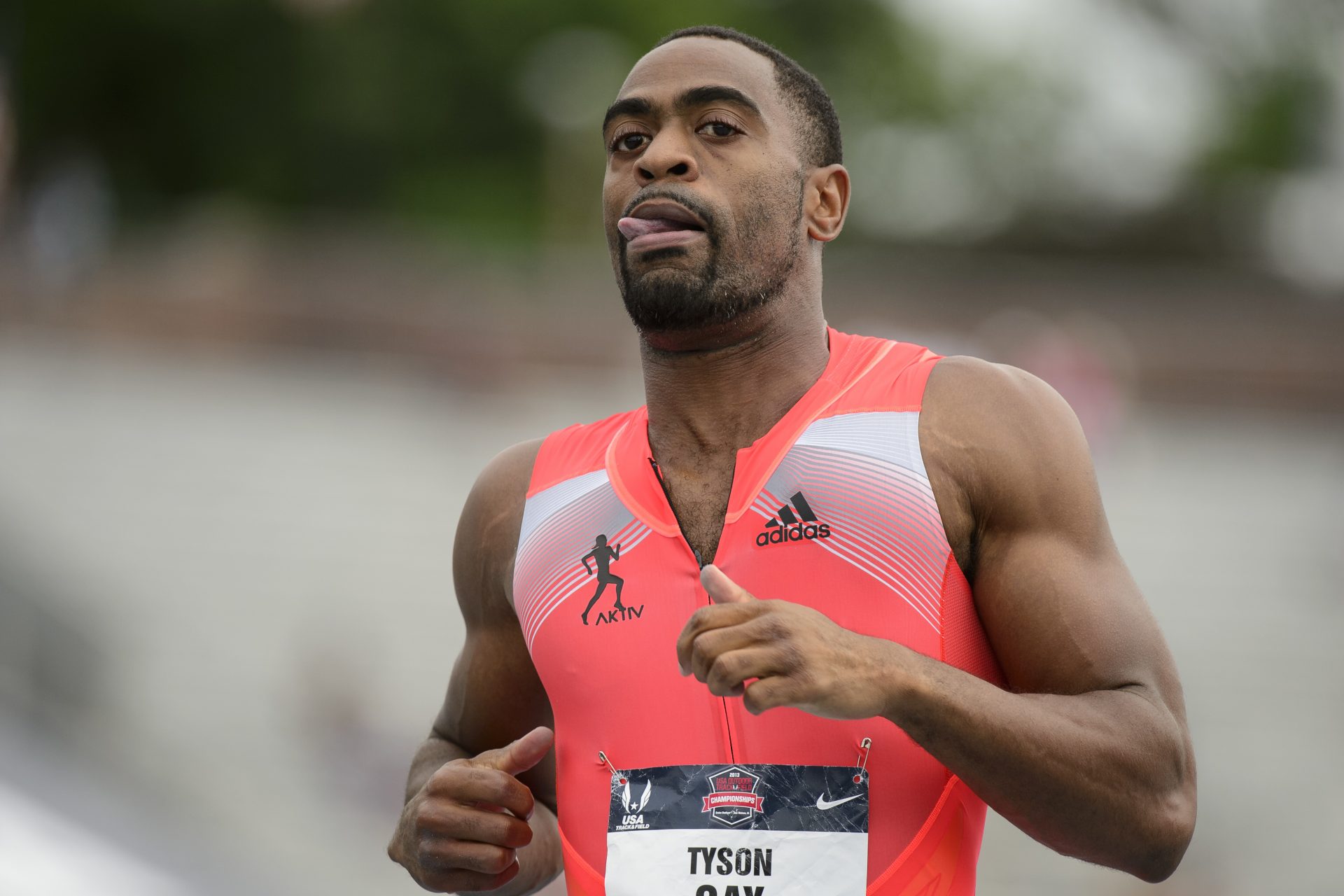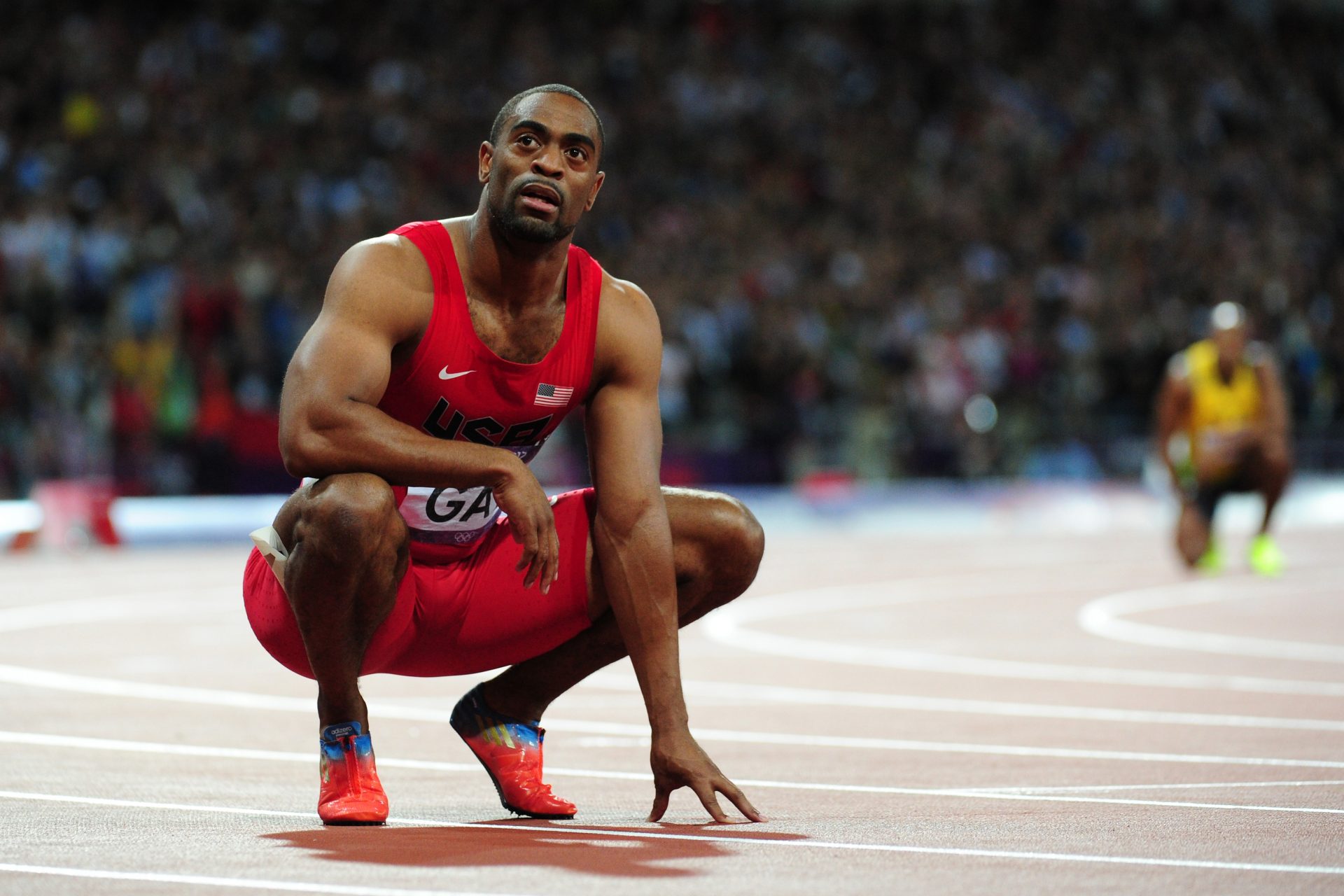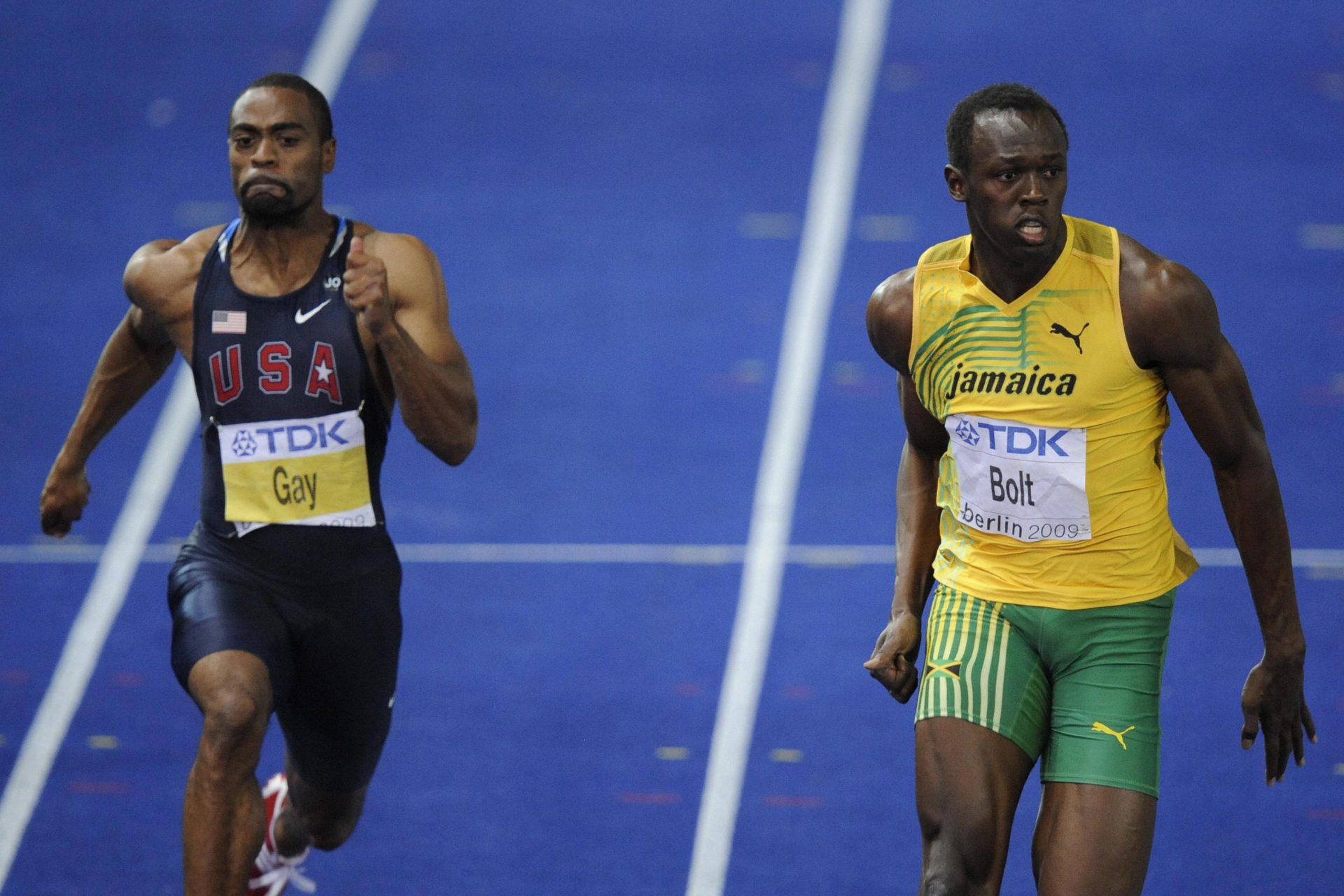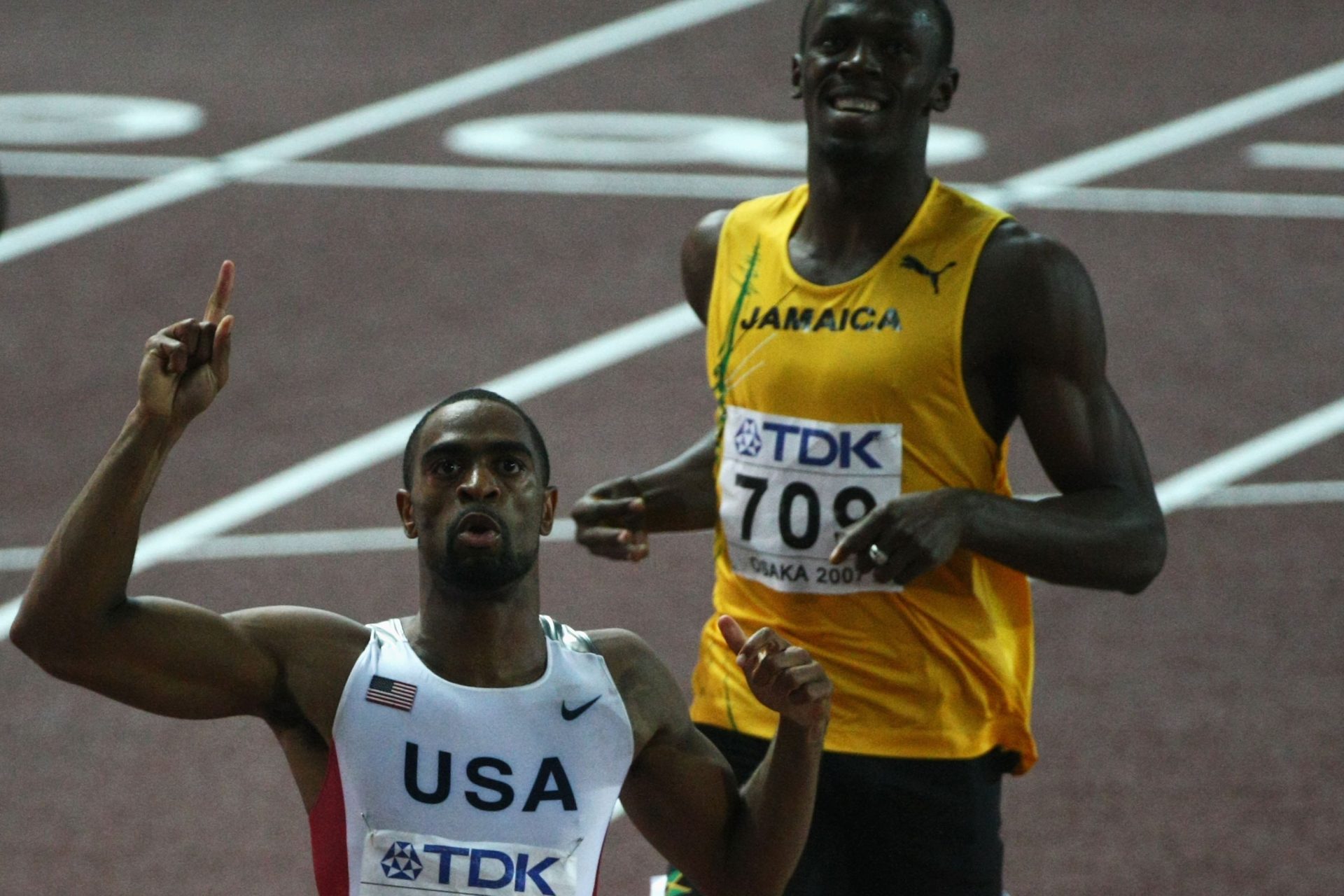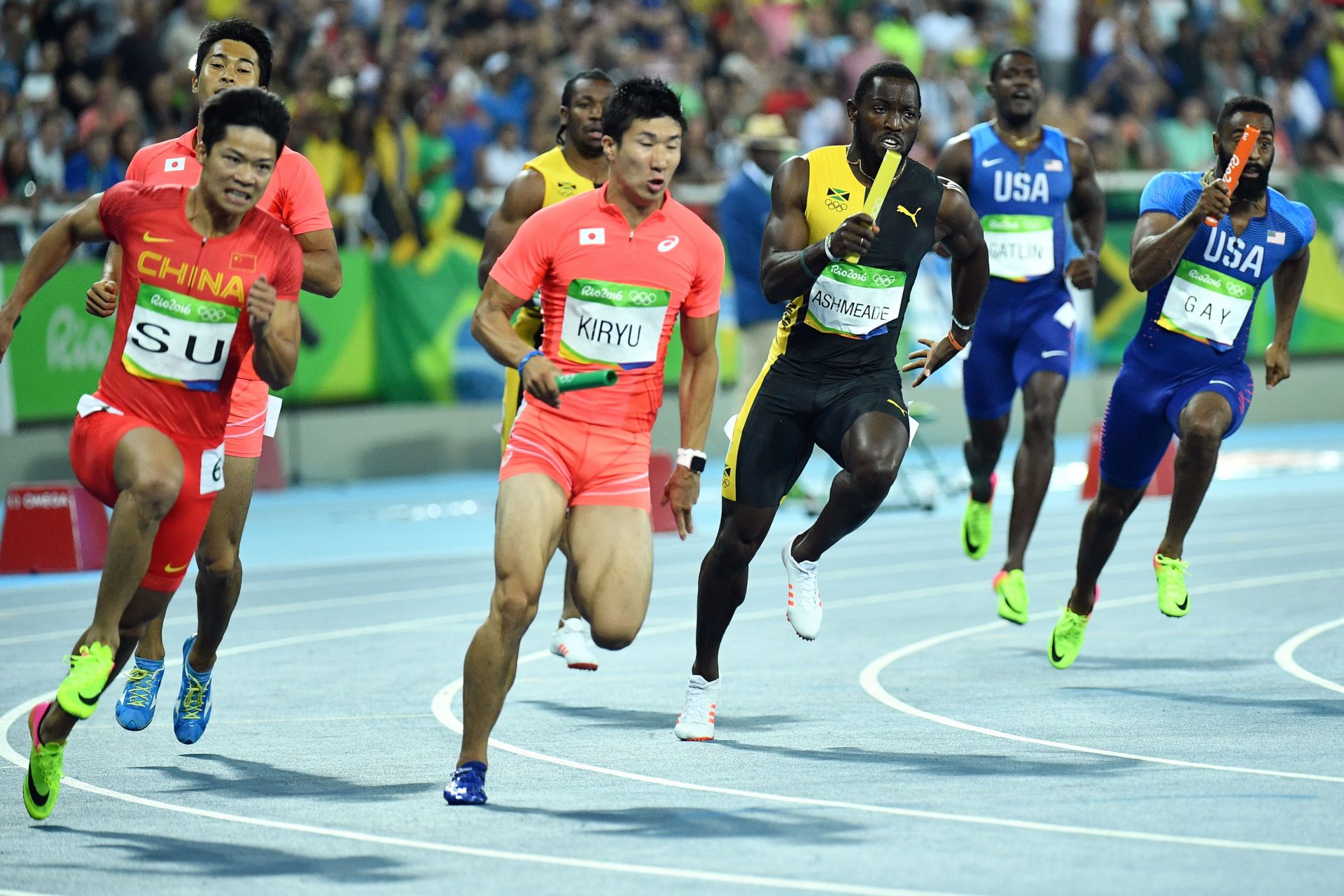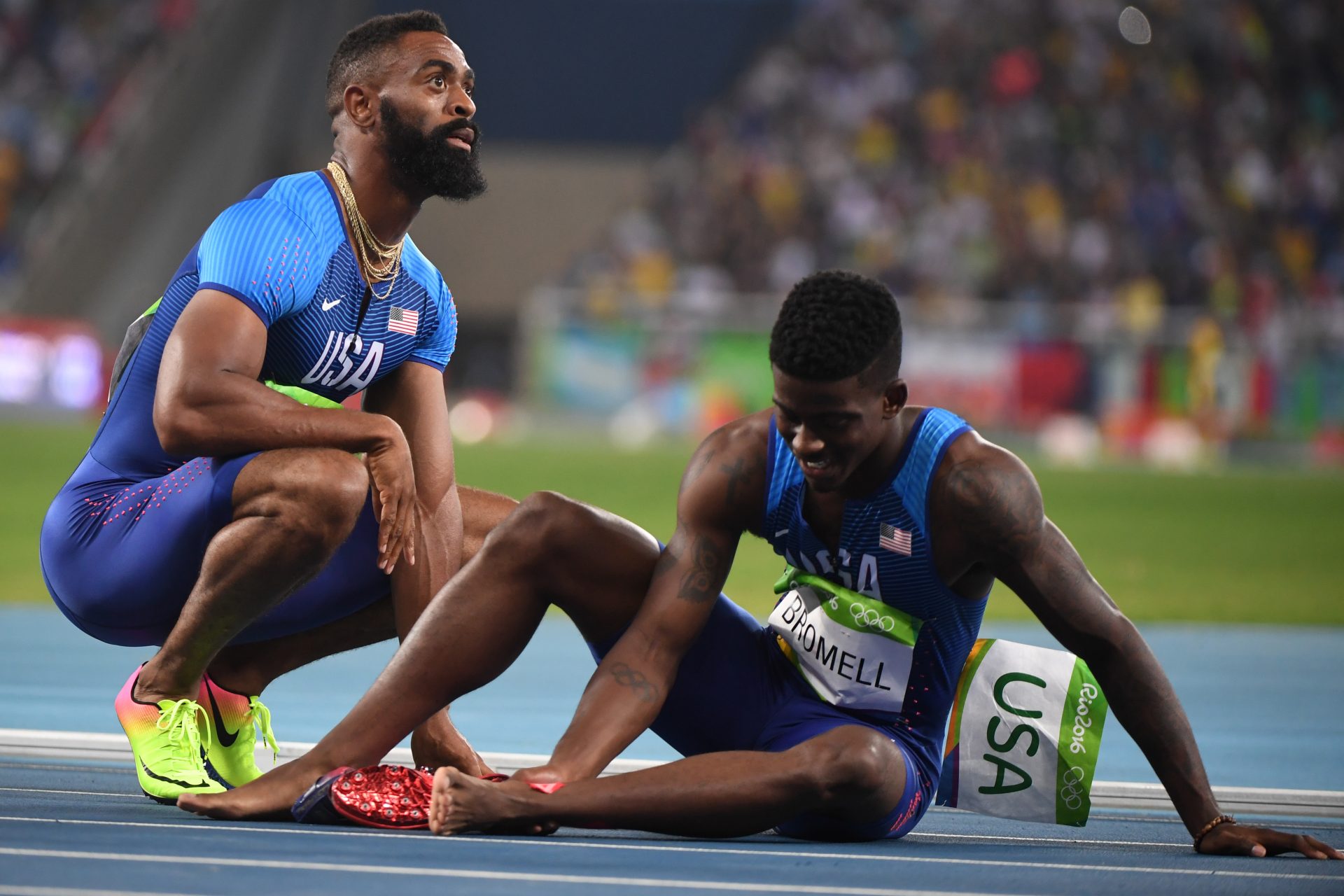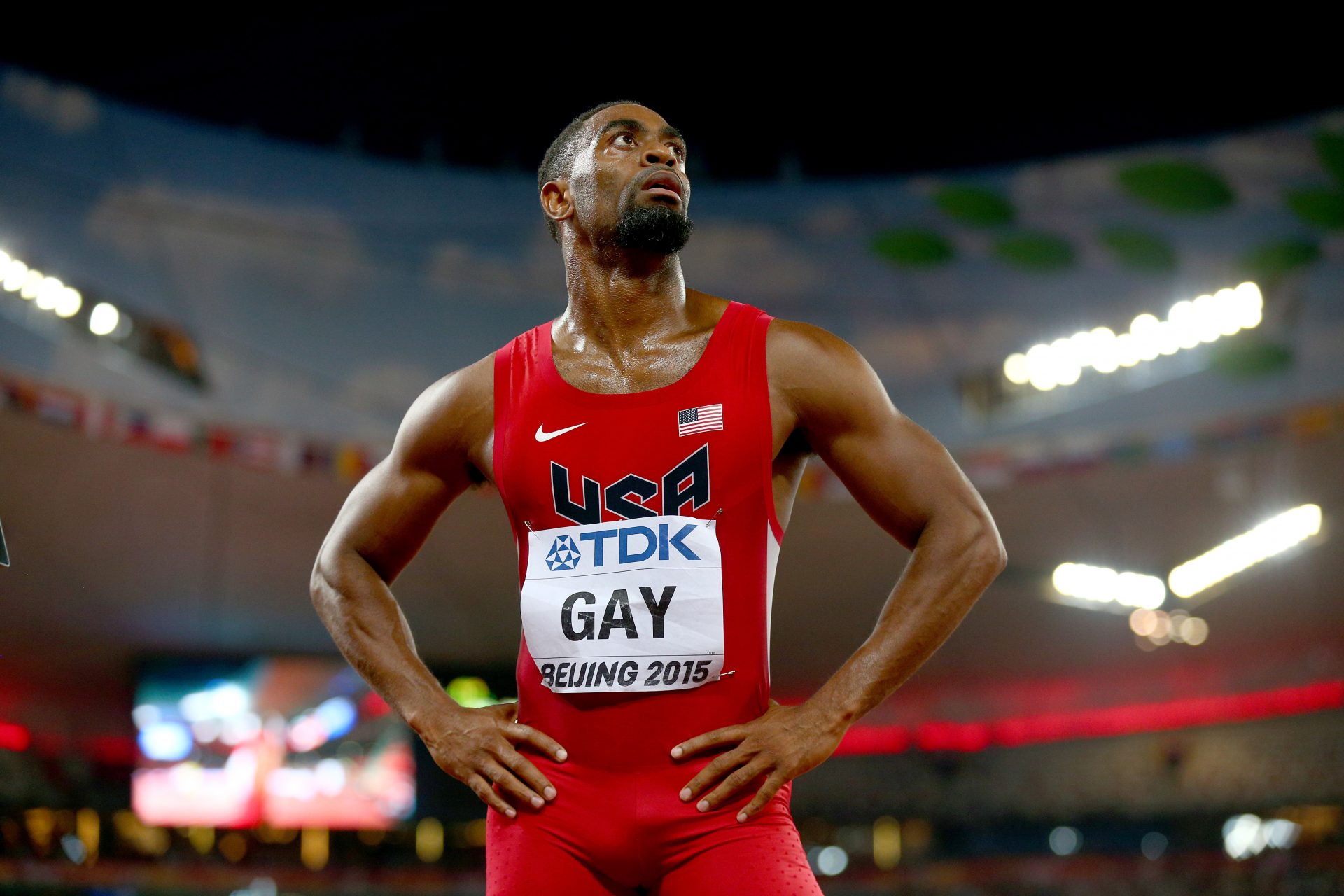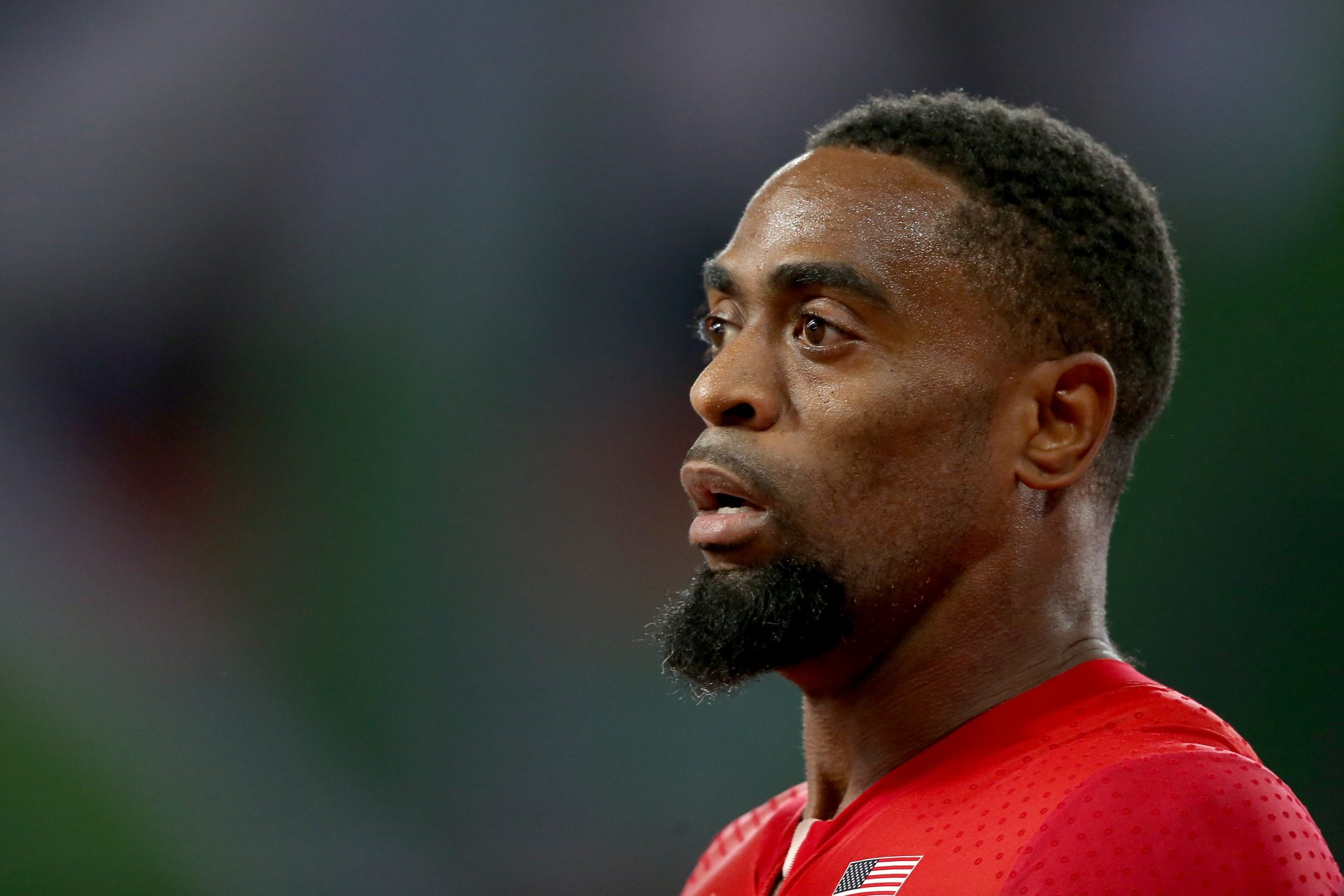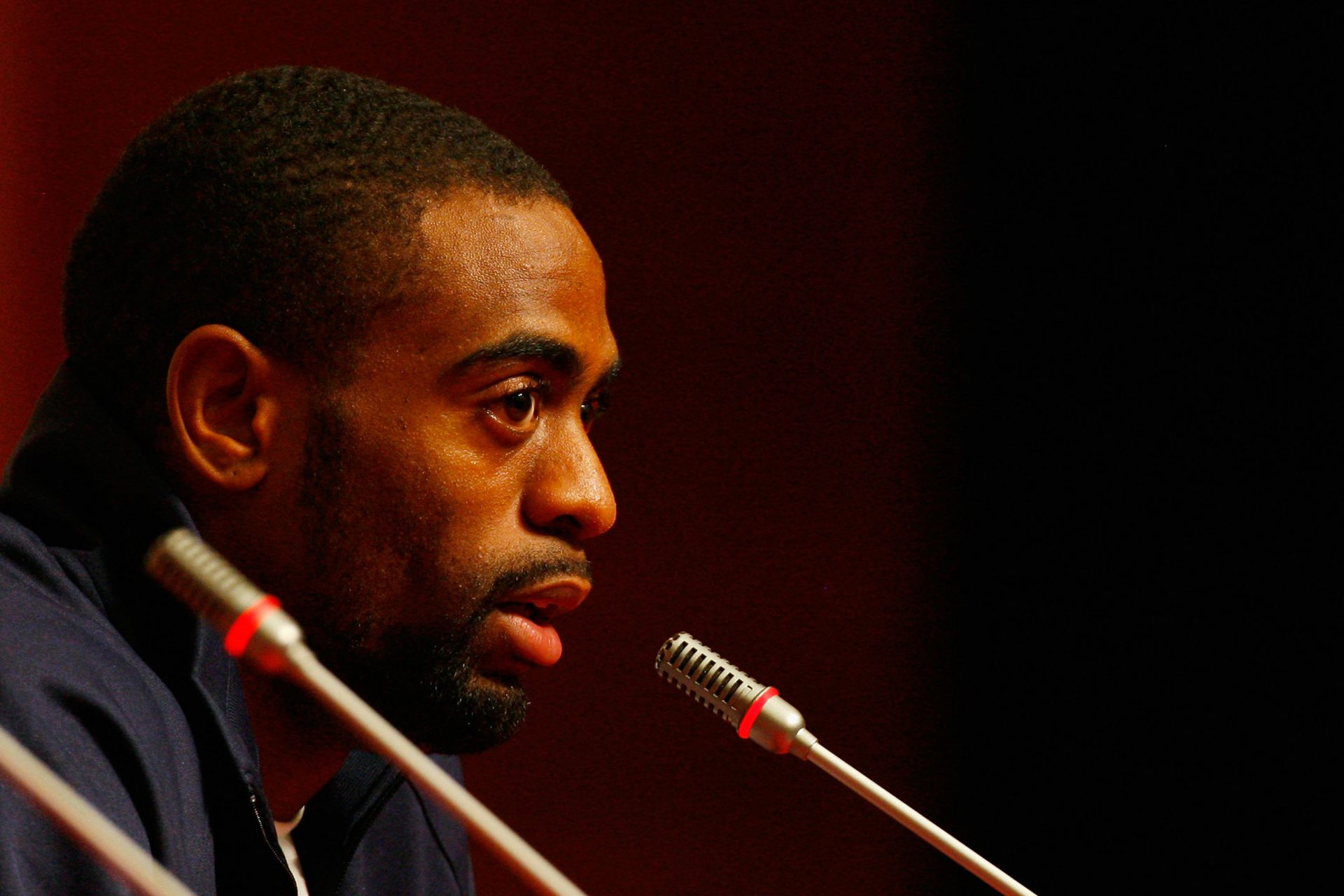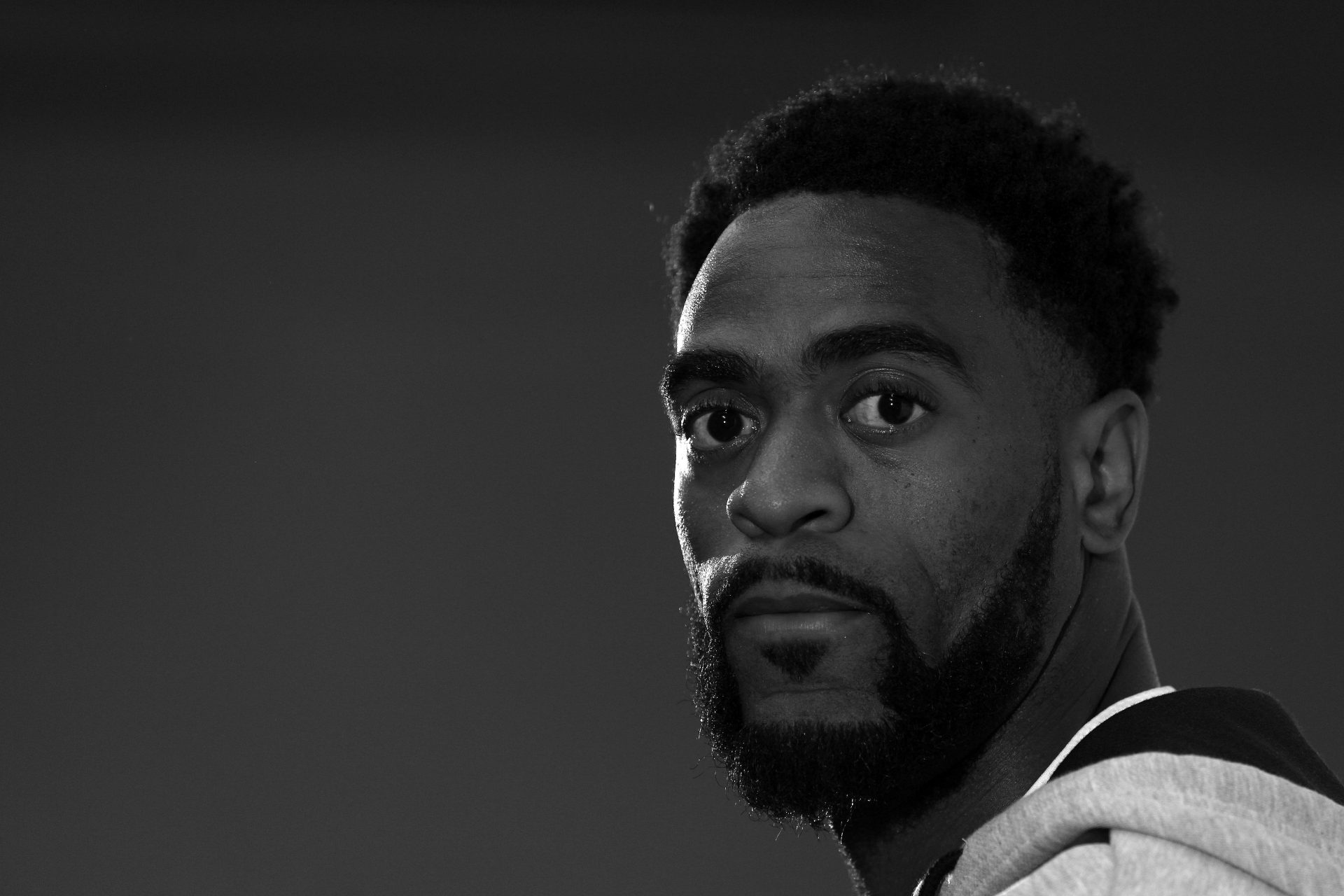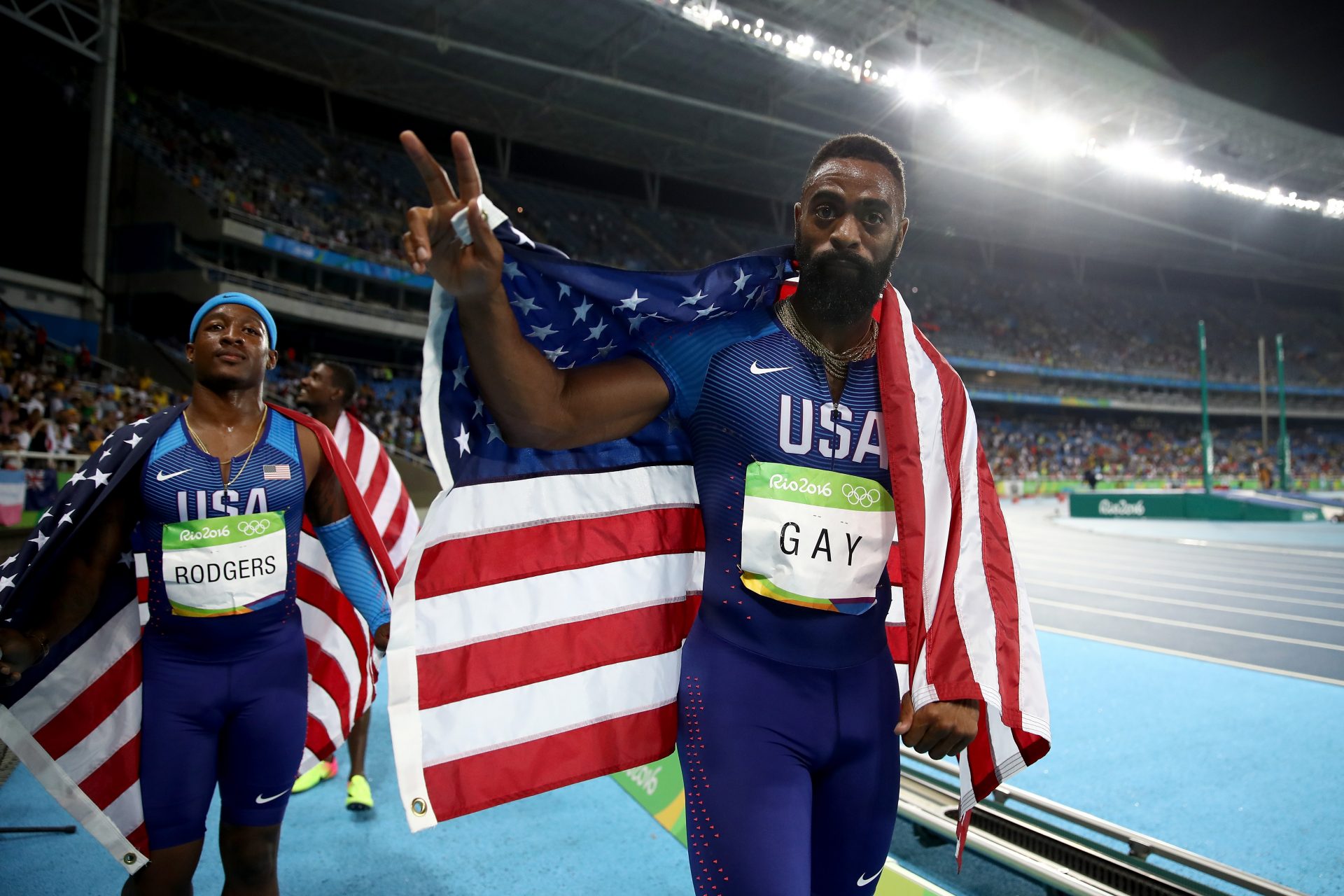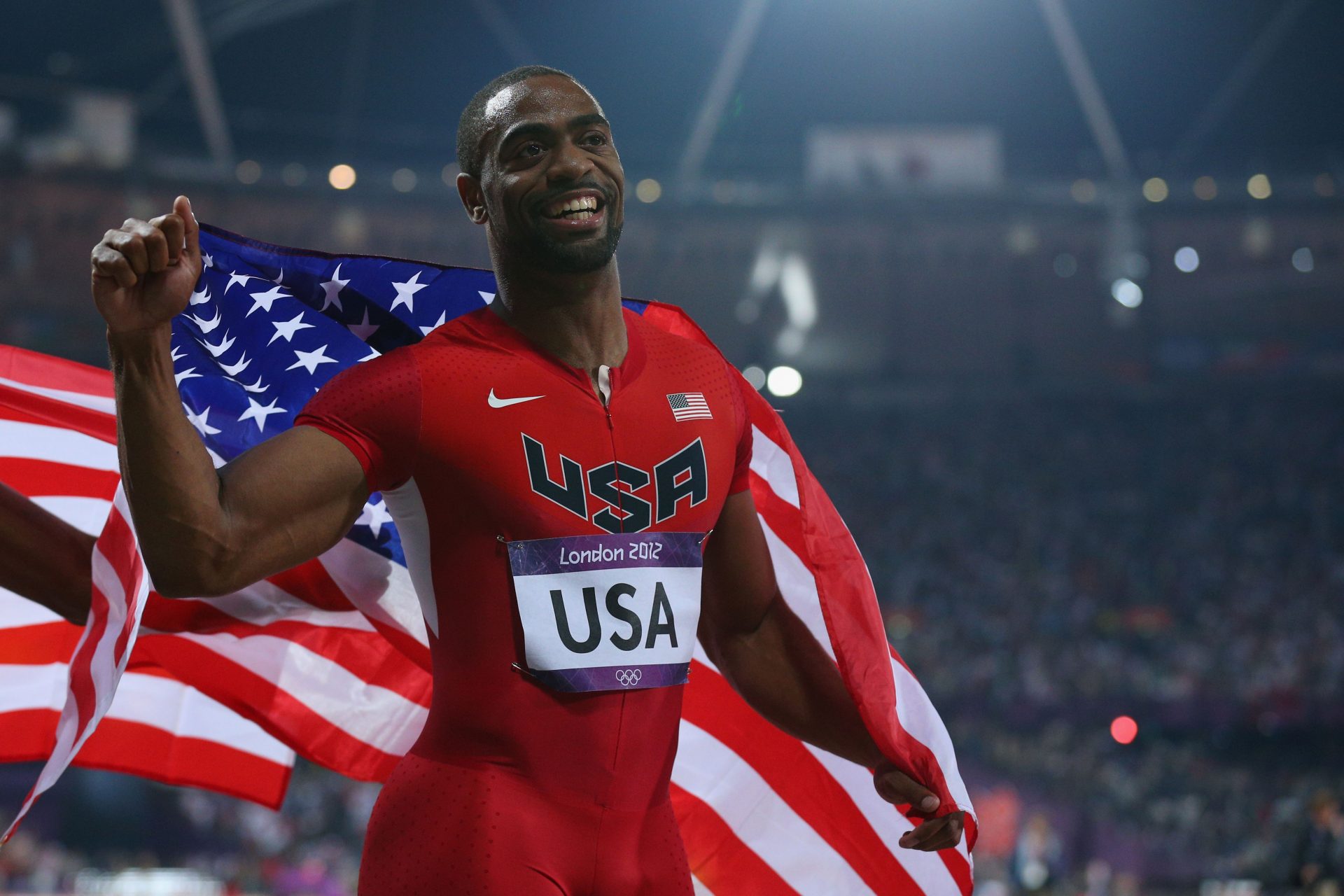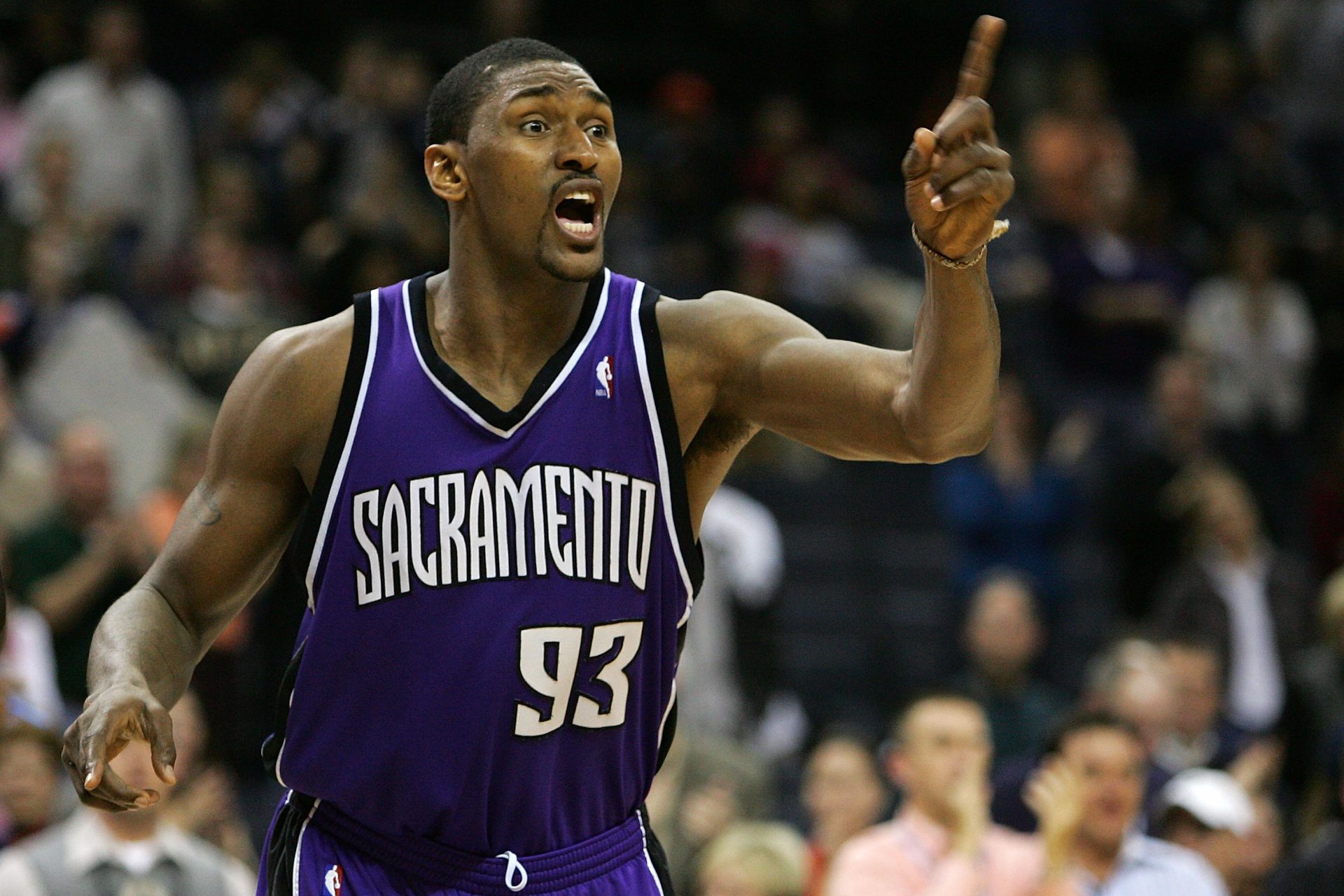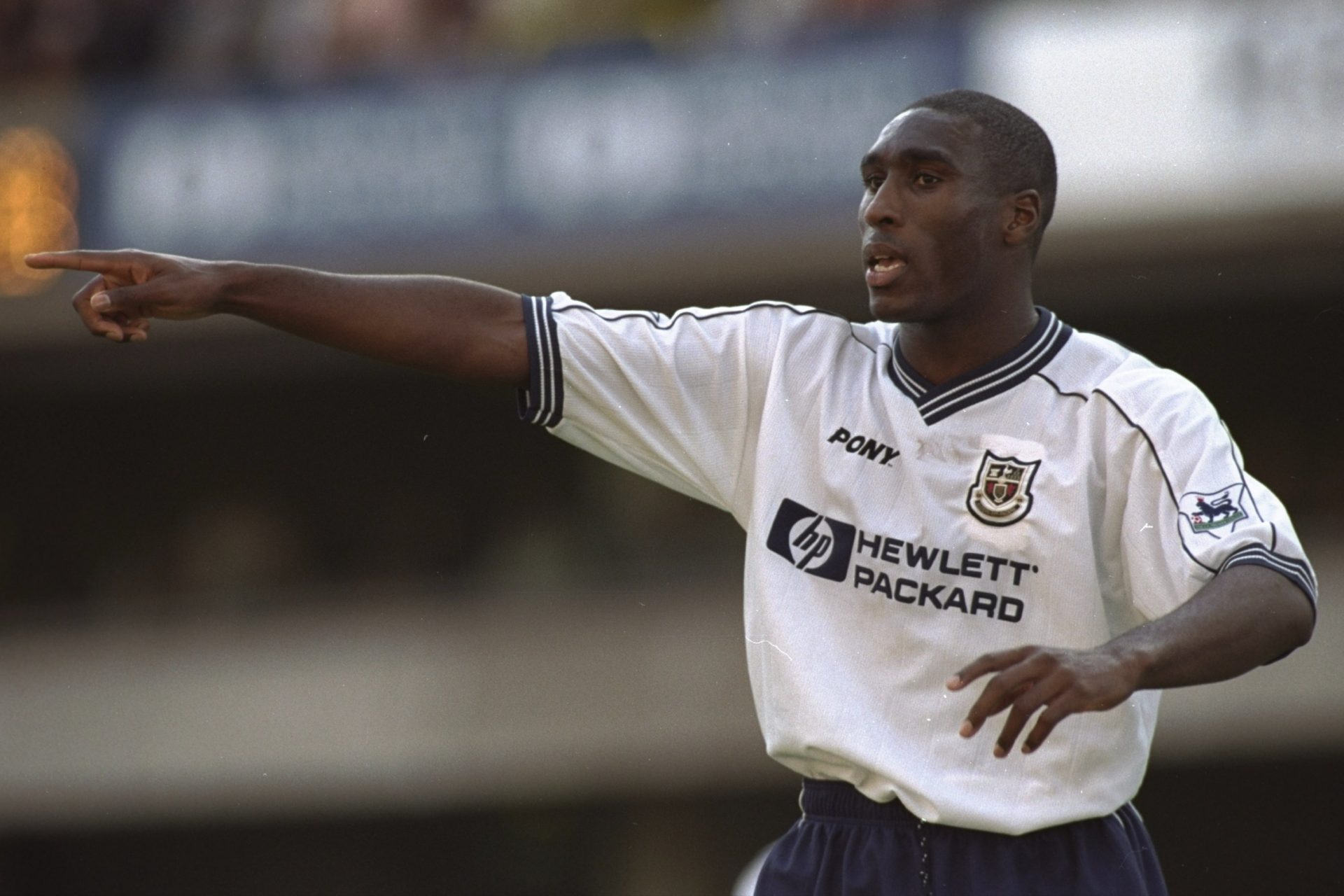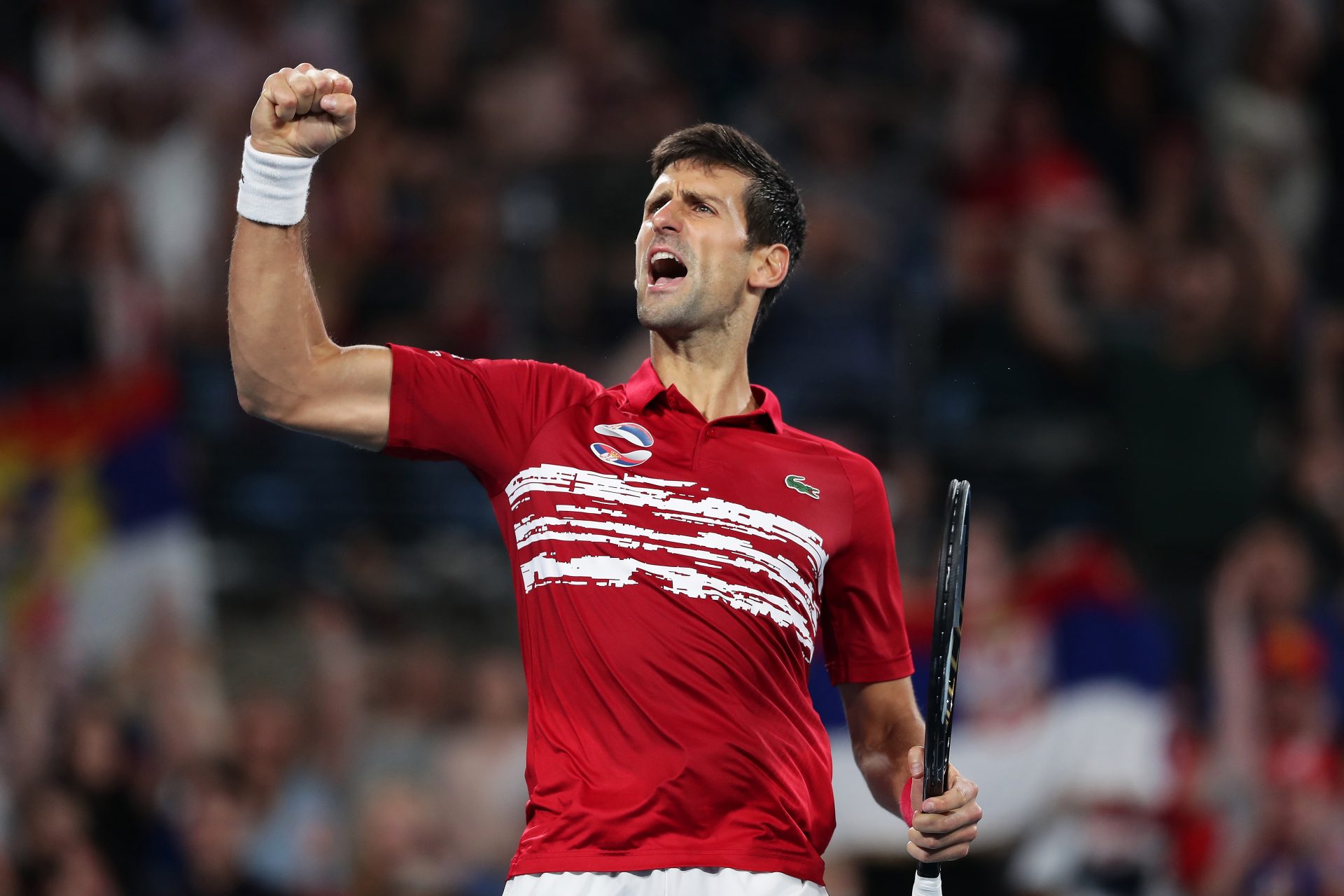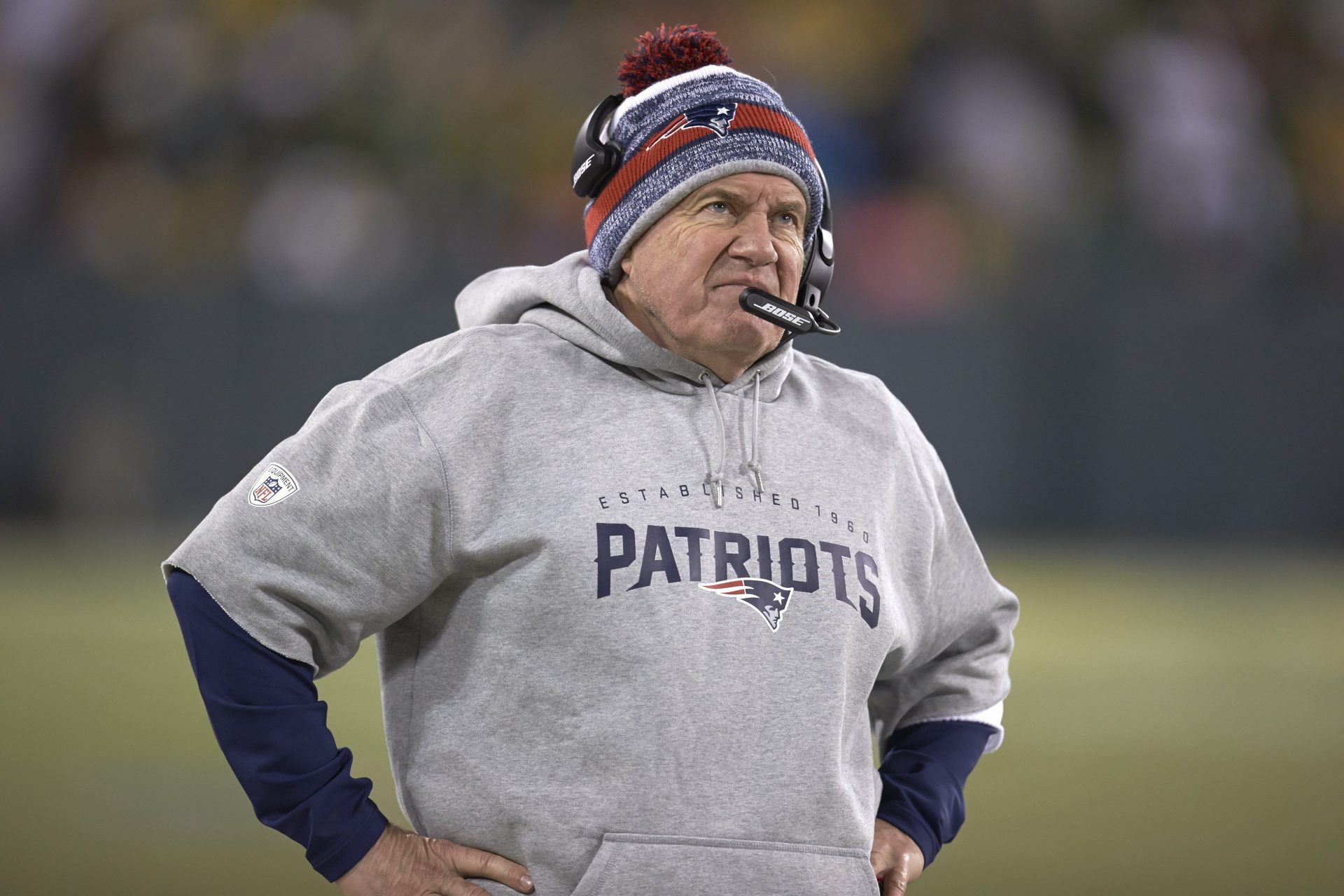The tragic story of Tyson Gay, the second fastest man in history
In his prime, Tyson Gay was one of the fastest men in the world and could compete with the very best.
However, his rivalry with one other sprinting superstar has meant he’s had to settle with the rather backhanded title of 'the second fastest man in history'. But there is a whole other side to Gay as well – including some major controversies and tragedies.
Tyson Gay burst onto the international scene in the mid-2000s, quickly establishing himself as a dominant force in sprinting. Born on August 9, 1982, in Lexington, Kentucky, Gay showed promise as a sprinter from a young age.
Want to see more like this? Follow us here for daily sports news, profiles and analysis!
His college career at the University of Arkansas solidified his status as a rising star. In 2005, Gay (left) won the NCAA championship in the 100 meters, and by 2006, he had set a new American record in the 200 meters with a time of 19.62 seconds.
Gay’s breakthrough came in 2007 at the World Championships in Osaka, Japan, where he won gold in the 100 meters, 200 meters, and 4x100 meters relay, as documented by World Athletics.
His dominance in these events marked him as one of the premier sprinters of his generation. In September 2009, Gay set a personal best of 9.69 seconds in the 100 meters at the Shanghai Golden Grand Prix, making him the second fastest man in history, behind only Usain Bolt, who claimed 9.58 at the World Athletics Championships in Berlin just a month prior, as archived by World Athletics.
Despite his remarkable achievements, Gay's career was often overshadowed by the dominance of Bolt. The Jamaican, with his charismatic personality and world-record performances, became the face of sprinting.
Gay – a more reserved and serious runner – while highly respected, never quite captured the same level of global fame. However, Gay's consistency and speed ensured that he remained a formidable competitor and a perennial threat to Bolt's supremacy.
It ultimately meant Gay would spend his career in the shadow of Bolt, something which Gay never came to terms with. "It gets to him," Michael Stroh, Gay's live-in personal assistant and massage therapist, told The Guardian in 2010. "When he sees Usain making the top-10 list on the sports channel and he doesn't, he doesn't like it. Or that Gatorade advert [in which Bolt is the only non-American sports star featured]."
One of the most significant setbacks in Gay's career came in 2013 when he tested positive for anabolic steroids. This revelation shocked the athletics community, as Gay had been seen as a clean athlete who spoke out against doping.
Want to see more like this? Follow us here for daily sports news, profiles and analysis!
Gay attributed the failed test to using a cream containing testosterone and human growth hormone, BBC Sport reported in 2014, and while he took responsibility for his role in it, he ultimately leveled the blame at his former coach Jon Drummond for deceiving him about the nature of the medication.
The positive test led to a one-year suspension and the forfeiture of all results from July 2012 onwards, including a silver medal from the 2012 London Olympics, which the United States 4x100 meters relay team had claimed.
The leniency of the suspension frustrated rival Bolt, who told Runners World in 2015 that he thought Gay should be banned for life: "I was really upset about that. He got a year just because he talked to the authorities about how it was done and who helped him."
"That sends the wrong message: 'If you do it and get caught, just tell us all you know and we’ll lower your ban'. It’s the stupidest thing I’ve ever heard. The message should be: 'If you cheat you’re going to be kicked out of the sport'."
In the later stages of his career, Gay struggled to regain his previous form. While he continued to compete at a high level, he was unable to replicate the blistering times of his prime. At the 2016 Summer Olympics in Rio, Gay took part in the men's 4 x 100m relay, which ran third behind Jamiaca and Japan in the final.
The team would be disqualified after the baton exchange between Mike Rodgers and Justin Gatlin was ruled to have touched hands before the exchange zone. Gay and the team would be stripped of their bronze medal.
Want to see more like this? Follow us here for daily sports news, profiles and analysis!
In October 2016, Gay faced an unimaginable personal tragedy when his 15-year-old daughter, Trinity Gay, was fatally shot in Lexington, Kentucky. She was a bystander during a shootout between occupants of two cars in the parking lot, according to The Guardian.
Trinity was an aspiring sprinter like her father, and her death devastated Gay and his family. The loss had a profound impact on him, and he spoke publicly about the pain and grief he experienced.
"Retirement crossed my mind," Gay told Sports Illustrated in 2017. "Sometimes the body doesn’t give you the times that you want. I’m late in my career. Mentally, you can get flustered. I was up and down with my decision-making. This is a sport that I love and I found it hard to hang up the spikes like that."
Despite the tragedy, Gay continued to compete, though it was clear that things had changed for him mentally. He became an advocate for gun control and worked to honor his daughter's memory through various initiatives aimed at supporting youth in athletics.
Gay retired from the sport in 2017, and has kept a relatively low profile since. In May 2024 he released an e-book titled '10 Must Have Tips To Train Like A World Class Athlete,' which he hopes will help a new generation of athletes prepare for life as a professional, according to Essentially Sport.
Tyson Gay's legacy is complex. On one hand, he is remembered for his incredible speed, his competitive spirit, and his contributions to American sprinting. His 9.69-second run in the 100 meters is still the second fastest time recorded. But a career spent in the shadows of the greatest ever track star and a doping violation has arguably meant Gay will never get the recognition he probably deserved for being a supreme athlete.
Want to see more like this? Follow us here for daily sports news, profiles and analysis!
More for you
Top Stories



